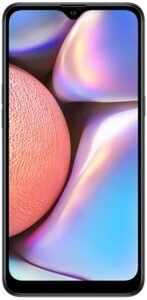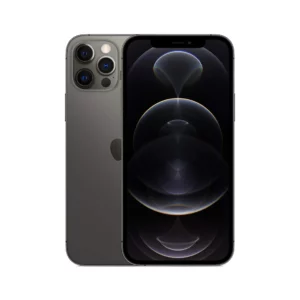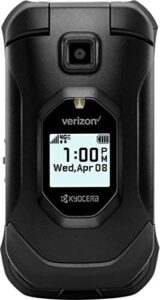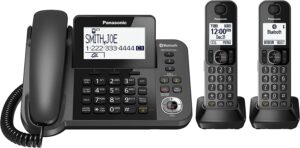Best Phones
Best Android Phone

Best iPhone

Best Removable Battery Phone

Best House Phone

Which style of phone is best for you? Whether you’re home and want the reliability of a landline or you’re out and about and want the convenience of a smartphone, there are options for everyone.
Home Phones
Even today, the age of smartphones, home phones are still prevalent. They may seem clunky and unnecessary, but they can actually be extremely useful during an emergency or in areas with low cell reception. There are a few features you’ll want to look out for when buying a new phone for your home —
Range
Your cordless home phone should have a good enough range that you can walk around your house — or even your yard — without dropping the call. Most cordless phones can range anywhere from 1,300ft – 2,300ft. It’s good to remember, though, that these top ranges typically pertain to “perfect conditions” which are rarely the case. With walls, windows, and other wireless devices, your cordless phone’s range will likely be affected.
Audio quality
One of the more obvious features to look for is good sound quality. You want your home phone to be crisp and clear for both you and the person on the other line. A lot of people believe that you don’t have to worry about static or call quality with a home phone quite like you do with a cell phone. Regardless of if that’s actually true or not, you shouldn’t have to struggle to hear the other person on a home phone call.
DECT 6.0
DECT stands for Digital Enhanced Cordless Telecommunications and is the wireless standard that allows a cordless phone to communicate to its base. Most cordless home phones nowadays come with DECT 6.0, meaning they operate at 1.9 GHz.
Full-duplex speakerphone
Your cordless home phone will come with a speakerphone feature, but it’s important that they have full-duplex support (rather than half-duplex). A phone with half-duplex can only send or receive data one at a time, like a walkie-talkie. With a full-duplex speakerphone, both people can talk without their conversation being cut off.
Cell Phones
Smartphones have dominated the cell phone industry and each of them come with their own features and specs. Here’s what to look into when searching for a new cell phone.
Operating system
First and foremost, you want to choose which operating system you want your phone to run on: Android or iOS. Each system comes with its own pros and cons. Android has dominated the smartphone industry worldwide in sales — there are a lot more choices for design, display, overall specs, and price than iOS. However, iOS has its own benefits such as overall ease of use, access to updates as soon as they launch, and the ability to sync and seamlessly work with your other Apple devices. iOS usually gets access to the best applications before Android, too. It really comes down to personal preference.
Camera
Everyone wants a quality camera on their phone, especially since it’s our primary way to document our lives. More smartphones nowadays come with cameras with at least 12 megapixels, but it’s also important to pay attention to the image quality, aperture, speed, and other photo features. For example, the iPhone has dual camera Portrait Mode, the Google Pixel 2 has an impressive low-light performance, etc. Video is just as important — resolution is important, but so is frame rate (4K at 60 frames per second is top quality) and stabilization. If you get the chance to test out the phone beforehand, definitely remember to check the camera.
Storage
The minimum storage that most smart phones offer these days is 32GB, but you can find up to 512 GB with the new iPhone 12. If you’re someone who takes a lot of photos and videos or has a lot of applications on your phone, you’ll probably want 64-128 GB or more.
Battery life
It’s important that your phone can last you throughout your day. A phone’s battery life is determined by a variety of things — applications, screen size, operation system, processor, etc. Any phone that can last over 10 hours on 4G LTE is considered top notch.
There are fast charger accessories you can buy separately that can juice your smartphone up in a rush, depending on the model. The Pixel 2 can be fast-charged for 15 minutes and get up to 7 hours of power, and the latest iPhones offer fast charging, too.
A less popular option is a phone with removable batteries. There are some benefits to this kind of phone — once the battery stops adequately holding a charge, you can just swap it out with a new one without having to pay for an entirely new phone.
Best Android Phone

This immersive phone from Samsung has powerful dual cameras for high-resolution taking photos and videos and an impressive Infinity-V HD screen. The premium glossy finish and three color options will give you a high-quality aesthetic while the 3GB of RAM and long-lasting battery will give you a high-quality experience. Easily unlock your phone with facial recognition or a rear fingerprint sensor and you’re good to go.
Best iPhone

The iPhone 12 Pro comes with 5G speed and the A14 Bionic chip, the fastest chip in a smartphone today. The pro camera system takes low-light photography to the next level, especially on the edge-to-edge Super Retina XDR display. Plus you’ll love the Ceramic Shield that has four times the drop performance so you can worry less about breaking your phone if it’s accidentally dropped.
Best Removable Battery Phone

This virtually indestructible phone by Kyocera is built with military standards to protect against water (waterproof up to 6.5ft), poor weather conditions, shock and vibration (drop proof up to 5ft), and extreme temperatures. You can set the customizable menu with multiple keys including an SOS feature, push-to-talk, etc. The fast quad-core and removable high-power battery keeps your phone working efficiently for the entire day.
Best House Phone

The Panasonic home phone system can be corded or cordless with bluetooth syncing capabilities with your smartphones. The smart base unit is designed with a high-contract LCD screen that easily adjusts for maximum readability and comes with caller ID for instant alerts. You can easily block calls, even while the phone is ringing or while on a call — who wants those irritating calls from telemarketers or robot callers? As a bonus, the powerful battery backup system will keep you connected even during power outages.
FAQs about Phones
When should I replace my cell phone?
The average smartphone lasts about two to three years. When it’s time to replace, it’ll start to show signs of wear, such as losing battery faster than normal or apps running slower.
Can all smartphones charge wirelessly?
Most smartphone models nowadays are compatible with wireless chargers. Some phone models even come with “reverse wireless charging”, where you can wirelessly charge other phones with your phone’s battery.
How long do home phones last?
The average battery of a cordless home phone will last around 1 to 2 years. Cordless phones are fairly durable, and the phone’s battery usually dies before the phone’s body.

